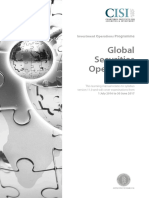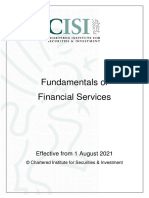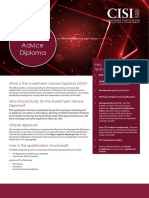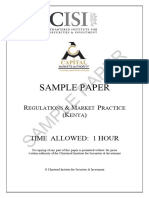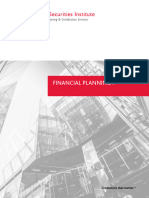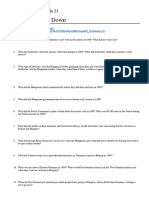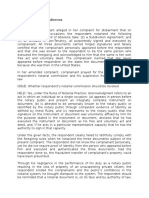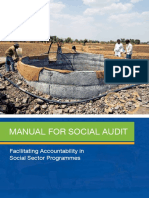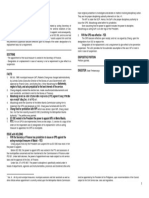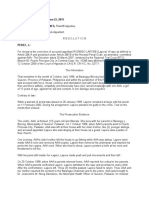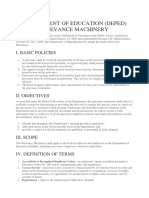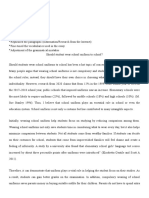100% found this document useful (1 vote)
424 views16 pagesChapter 5
1. The document discusses UAE financial rules and regulations around anti-money laundering and combating the financing of terrorism from Chapter 5. It covers offences related to money laundering and financing of terrorism, the role of the financial services industry including customer due diligence and reporting suspicious transactions, requirements for politically exposed persons, and use of third party service providers.
2. Financial institutions are required to perform customer due diligence including verifying customer identity and beneficial owners. They must report any suspicions of money laundering or terrorism financing to the UAE's Financial Intelligence Unit.
3. Additional measures are required for politically exposed persons, including foreign, domestic, and those previously entrusted with prominent international roles.
Uploaded by
shenazCopyright
© © All Rights Reserved
We take content rights seriously. If you suspect this is your content, claim it here.
Available Formats
Download as PDF, TXT or read online on Scribd
100% found this document useful (1 vote)
424 views16 pagesChapter 5
1. The document discusses UAE financial rules and regulations around anti-money laundering and combating the financing of terrorism from Chapter 5. It covers offences related to money laundering and financing of terrorism, the role of the financial services industry including customer due diligence and reporting suspicious transactions, requirements for politically exposed persons, and use of third party service providers.
2. Financial institutions are required to perform customer due diligence including verifying customer identity and beneficial owners. They must report any suspicions of money laundering or terrorism financing to the UAE's Financial Intelligence Unit.
3. Additional measures are required for politically exposed persons, including foreign, domestic, and those previously entrusted with prominent international roles.
Uploaded by
shenazCopyright
© © All Rights Reserved
We take content rights seriously. If you suspect this is your content, claim it here.
Available Formats
Download as PDF, TXT or read online on Scribd
/ 16





















